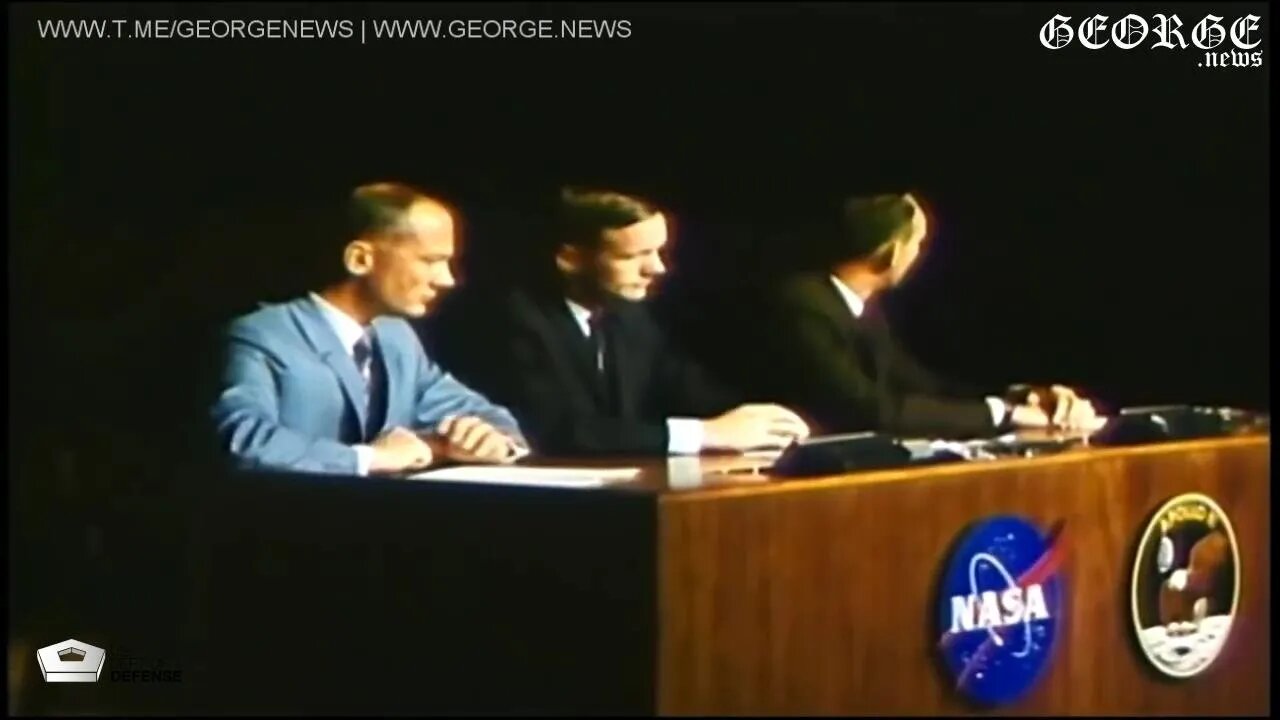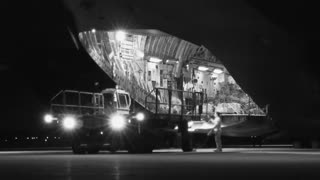Premium Only Content

Apollo 11, Post FLIGHT Press Conference (1969)
https://george.news | Wednesday, July 20, was the 53rd anniversary of Apollo 11 astronauts' Neil Armstrong and Edwin "Buzz" Aldrin 'walk on the Moon' | "On July 20, 1969, the world paused to watch and listen as America's Apollo 11 astronauts Neil Armstrong and Edwin "Buzz" Aldrin became the first humans to walk on the Moon. The historic moment was the climax of a space program that President John F. Kennedy challenged 8 years earlier to, "commit itself to achieving the goal, before this decade is out, of landing a man on the Moon and returning him safely to the Earth."
When President Kennedy challenged the United States to land a man on the Moon in a May 25, 1961 speech before a Joint Session of Congress, the National Aeronautics and Space Administration's (NASA's) manned-spaceflight program was in its infancy. Just 3 weeks earlier, Alan Shepard became the first American astronaut to complete a flight aboard his Freedom 7 Mercury space capsule. Despite Shepard's achievement, the United States lagged far behind the Soviet Union. In October 1957, the Soviets launched the world's first satellite (Sputnik I) into space, and on April 12, 1961, Russian cosmonaut Yuri Gargarin became the first human in space and the first to orbit Earth—a far more complex mission than Shepard's 15-minute suborbital flight.
Over the next 8 years, astronauts, engineers, scientists, physicists, computer programmers, technicians, and thousands of other federal government and contract employees worked long days and sleepless nights to achieve Kennedy's goal and beat the Soviets to the Moon. Between Shepard's 1961 suborbital flight and Gordon Cooper's May 15–16, 1963 22-orbit flight, six Mercury missions launched individual astronauts into space to complete increasingly difficult tasks and maneuvers. Between 1964 and 1966, 12 unmanned and manned Gemini missions helped the United States take the lead in space as NASA and its astronauts prepared for the rigors of extended and increasingly complex space flights."
-
 1:24
1:24
GEORGE NEWS
25 days agoU.S. Soldiers arrive at MCAS Miramar
9472 -
 7:34:25
7:34:25
Dr Disrespect
14 hours ago🔴LIVE - DR DISRESPECT - WARZONE - IMPOSSIBLE TRIPLE THREAT CHALLENGE
181K26 -
 1:02:45
1:02:45
Tundra Tactical
4 hours ago $10.76 earned🛑 KASH PATEL NEW ATF DIRECTOR??? Breaking News!!!! 🛑
32.9K7 -
 LIVE
LIVE
I_Came_With_Fire_Podcast
14 hours agoMy EURO Divorce | HOGG with a side of PAC | Foreign FUNDS Fudged
355 watching -
 37:44
37:44
Glenn Greenwald
11 hours agoGlenn On Tearing Down the Military Industrial Complex, Exposing Pro-Israel Indoctrination, and More | SYSTEM UPDATE #411
88.5K107 -
 4:04:20
4:04:20
Nerdrotic
10 hours ago $47.80 earnedAmazon Takes 007! Hollywood is Lost, Disney Cancels WHO? | Friday Night Tights 342 /w ItsAGundam
150K29 -
 43:27
43:27
Tucker Carlson
9 hours agoRay Dalio: America’s Hidden Civil War, and the Race to Beat China in Tech, Economics, and Academia
150K174 -
 56:56
56:56
Candace Show Podcast
9 hours agoEXCLUSIVE: Taylor Swift Will Be Deposed. | Candace Ep 150
150K145 -
 1:03:52
1:03:52
IsaacButterfield
6 hours ago $3.55 earnedRepublican Vs 25 Transgender Activists | Jewish Outrage | Lizzo Loses All the Weight
44.7K13 -
 1:10:23
1:10:23
Edge of Wonder
10 hours agoChinese Biochips Hacking Minds? Quantum Control & Journey Song Mandela Effect
71.6K8